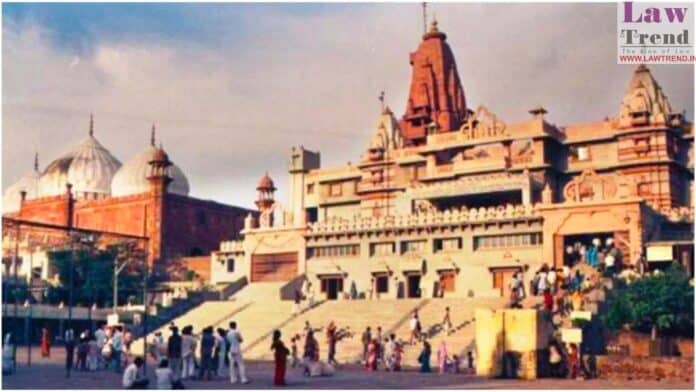In a recent development concerning the longstanding Mathura Shri Krishna Janmabhoomi dispute, the Supreme Court on Tuesday (March 19) dismissed a petition filed by the mosque committee. The petition challenged the Allahabad High Court’s decision to consolidate and hear 15 related lawsuits together. The Supreme Court directed that the matter should remain within the jurisdiction of the High Court.
The controversy revolves around the Shahi Idgah Mosque in Mathura, Uttar Pradesh, which has been the subject of legal battles in the High Court as well. The mosque committee had opposed the High Court’s decision to transfer all related cases from the Mathura district court to itself. It’s important to note that another petition by the mosque committee against this transfer is still pending in the Supreme Court, with a hearing scheduled for April. The current issue pertained to the consolidation of 15 out of 18 cases.
The Supreme Court declined to intervene in the matter, advising the mosque committee to follow the High Court’s processes. “The Supreme Court has instructed the Shahi Idgah Mosque to present its case in the Allahabad High Court,” stated Vishnu Shankar Jain, a lawyer representing the Hindu side. He further explained that the High Court has merged 15 cases related to the Krishna Janmabhoomi-Shahi Idgah Mosque dispute for a joint hearing.
Jain added, “The Supreme Court mentioned that you have already filed a recall application against the High Court’s consolidation order, so wait for that decision before approaching the Supreme Court.”
Also Read
The crux of the dispute lies in the claim made by the Hindu side that the Shahi Idgah Mosque in Mathura was constructed over the birthplace of Lord Krishna. A petition demanding the declaration of the site as Shri Krishna Janmabhoomi was dismissed by the court in 2022.
According to Hindu claimants, the temple at the site was originally built by Orchha’s King Veer Singh Bundela in 1618, which was later demolished on the orders of Mughal Emperor Aurangzeb in 1670 to construct the Shahi Idgah Mosque. Conversely, representatives of the Shahi Idgah Mosque argue that the mosque was not built on the disputed land.




